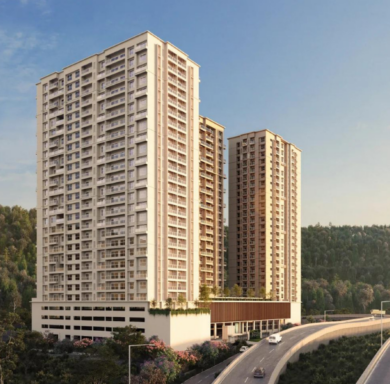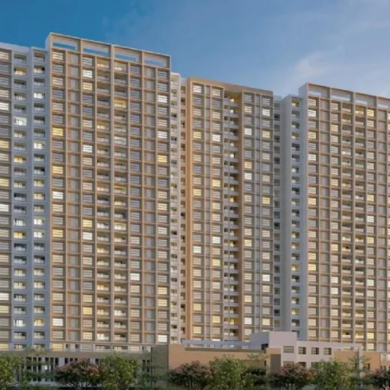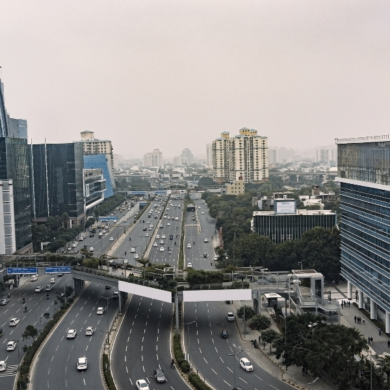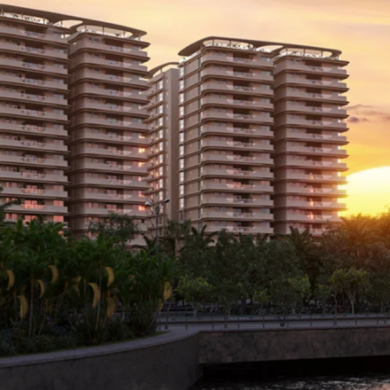
Pune real estate market trends 2025 indicate significant growth – driven by economic expansion, infrastructure upgrades, rising demand for sustainable housing, and diverse investment opportunities across residential, commercial, & luxury segments.
The cultural and educational capital of Maharashtra is a city rich in heritage – blending its historic essence with rapid modernisation. Over the past few decades, Pune’s real estate market growth has been exponential, mirroring the city’s evolution as an educational hub and economic powerhouse.
Many factors have propelled this growth – from a robust IT sector and excellent educational institutions to significant infrastructure developments. These elements have collectively fuelled Pune real estate market growth and made it a prime destination for property investment in India.
This blog will provide Pune property market forecast 2025 full of insights – examining the emerging economy, the role of infrastructure development, government policies, market trends, and more.
Table of Contents
Pune’s Economic Growth
Pune real estate market trends 2025 indicate high demand propelled by urbanisation and significant infrastructure development. The city’s robust GDP growth will be underpinned by its flourishing IT sector, established manufacturing base, and rapidly expanding startup ecosystem. With large hubs such as Hinjewadi Infotech Park and Magarpatta City, the IT sector in Pune attracts talent nationwide – spurring a steady population influx and boosting demand for residential spaces.
According to the Economic Survey of Maharashtra 2023-24, Pune ranks as Maharashtra’s second-largest economic contributor with a nominal GDP of ₹4,18,104 crores in 2022-23, and a high per capita income of ₹3,36,503. This strong financial base has increased the purchasing power – creating new market dynamics and investment opportunities.
Population Growth and Urbanisation
Pune’s population has experienced rapid growth, reaching an estimated 73,45,850 in 2024. This growth, with an annual increase of 2.5%, is driven by the city’s appeal as an economic and educational hub. Urbanisation has intensified as Pune attracts professionals & families from across India, diversifying demographics and raising demand across real estate segments.
Interest in premium properties has surged, particularly in some of the best areas to invest in Pune 2025. Also, 60% year-on-year increase in registrations of homes valued above ₹1 crore, is a strong indicator of the Pune real estate market growth. With continued urbanisation and increase in population, the city is set to touch further heights in 2025.
Read More: Why us Pune Real Estate Market Booming?
6 Key Drivers of Pune’s Real Estate Trends 2025
Pune real estate market growth in 2025 will be shaped by strong drivers, solidifying its reputation as a top choice for residential and commercial investments. Fuelled by thriving IT and commercial hubs, extensive infrastructure developments, and supportive government policies, the city’s growth trajectory is enhancing both demand and property values.
-
Rise of IT and Commercial Hubs
The emergence of tech hubs like Hinjewadi, Magarpatta, Kharadi and the development of gated communities in best areas to invest in Pune 2025 have led to robust commercial and residential growth in the city. Established IT parks – such as Hinjewadi’s Rajiv Gandhi Infotech Park – have significantly influenced residential demand in nearby areas, as professionals seek housing close to workplaces.
This trend of steady Pune real estate market growth is expected to continue, with over 230 companies across 95 industries – including major players like Cisco and Capgemini – reinforcing Pune’s standing as a tech nucleus
-
Infrastructure Developments
Pune’s real estate sector is also poised to benefit from infrastructure advancements. Key projects like the Pune Ring Road, Pune Metro, and new flyovers are alleviating traffic and enhancing connectivity. Supported by a substantial allocation in the government budgets, these projects will streamline daily commutes, making various parts of the city more accessible and appealing for residents and investors alike.
Additionally, smart city initiatives and projects such as the Lonavala Skywalk and the establishment of AIIMS in Aundh will lead to seamless connectivity, improved healthcare, and enhanced tourism – boosting the city’s real estate market growth and leading to positive Pune real estate market trends 2025.
-
Government Policies
The Maharashtra government plans to amend the MahaRERA Act to protect residents’ rights in housing societies. Prompted by issues raised by Deputy Chief Minister Devendra Fadnavis, the amendment will mandate developers to ensure adequate water supply and effective sewage treatment plants (STPs) in new projects – addressing residents’ complaints about unreliable services.
This amendment will make developers accountable for essential services, until the projects are handed over to society residents – particularly benefiting areas like Pimpri-Chinchwad where water and STP issues have been observed.
-
Rapid Urbanisation and Population Growth
With a population of approximately 55 lakh in 2011, growing at an average annual rate of 4.1% since 2001, the city is becoming an attractive destination for residents and investors alike. The urban extent has expanded to 45,944 hectares, increasing at 7.5% annually, which reflects a rising demand for modern housing and infrastructure.
This growth is fuelled by an influx of professionals and families drawn to Pune’s thriving IT, manufacturing, and educational sectors. Amidst this, it becomes important for investors to identify the best areas to invest in Pune 2025.
-
Work-from-Home and Hybrid Models
As companies embrace flexible work arrangements, there is a growing demand for residential spaces equipped with dedicated work areas and high-speed internet. Moreover, suburban living is gaining traction as families prioritise larger homes with outdoor spaces. Areas on the outskirts of Pune are becoming attractive for their affordability and quieter environments.
For homebuyers, identifying the best areas to invest in Pune 2025 means focusing on locations that cater to these evolving work trends. Properties that support work-life balance are likely to yield higher returns, making Pune a promising market in the era of remote work.
-
NRI Investment
Pune is increasingly attracting NRI interest in real estate, emerging as a desirable investment destination due to its strategic location and rapid urban development. The city’s affordable property prices, compared to Mumbai, make it a compelling option for investment – especially for NRIs benefiting from favourable exchange rates.
Pune’s robust educational infrastructure and numerous tech parks enhance its appeal for sustainable returns, particularly in student housing and rentals. With over 1300 under-construction projects and ongoing infrastructure developments, the city presents a favourable environment for long-term investors. Areas like Kothrud, Hinjewadi, and Hadapsar are among the best areas to invest in Pune 2025, with expectations of significant appreciation and attractive ROI.
Commercial and Luxury Markets
Pune real estate market trends 2025 hint at significant developments across residential market, commercial spaces, and luxury real estate segments.
-
Residential Real Estate Trends
According to Anarock’s Residential Market Viewpoints, Pune’s residential market claimed a substantial 16% of new residential launches across India’s top cities in Q2 2024 – adding around 18,900 units and marking a steady 1% quarterly increase. This growth is supported by government initiatives and a strong local economy, drawing in both homebuyers and investors.
The best areas to invest in Pune 2025 – including Baner, Kothrud, and Koregaon Park – offer appealing properties due to their strategic connectivity and modern facilities. Increasing demand for smart homes and sustainable buildings is also shaping Pune’s residential real estate, with many new developments incorporating energy-efficient designs and home automation.
-
Commercial Real Estate Trends
The city’s commercial spaces are thriving, with a 40% year-on-year rise in leasing, totalling 1.81 million sq ft in 2024. Domestic occupiers comprise 60% of this demand, driven by the rise of coworking spaces and expanding IT parks – reveals JLL.
Key areas like Kharadi, Balewadi, and Baner are drawing interest from companies seeking strategically located office spaces that blend convenience and connectivity. Mixed-use developments are also on the rise, creating versatile spaces that combine work, living, and recreation.
-
Luxury and Ultra-luxury Market
The demand for luxury apartments is set to grow in 2025, outpacing the national average. Pune real estate market trends 2025 project excellent growth in the luxury sector, fuelled by the ever-expanding IT sector and improved urban infrastructure. New luxury developments in the city feature advanced home automation, and dedicated wellness areas such as meditation gardens and spa zones.
With sustainability becoming an integral part of customer requirements, many luxury projects are getting certified by IGBC or LEED. These gated communities are incorporating eco-friendly features like solar power and rainwater harvesting. Pune real estate market growth is further distinguished by unique offerings curating exclusive experiences, such as private art galleries and gourmet dining.
Real Estate Price Trends in Pune (2025 Projections)
Pune real estate market trends 2025 indicate strong showing and rising buyer interest across the residential, commercial, and luxury segments. With steady demand and targeted urban development, the city remains a key destination for real estate investments.
Current Price Trends (2023-2024)
2023-24 trends show significant price appreciation across various micro-markets, setting the stage for further growth in the market.
| Key Areas | Avg. Quoted Rent
(₹ per month) |
Quarterly
Change (%) |
Avg. Quoted Rate
(₹ per sq ft) |
Quarterly
Change (%) |
| Wagholi | 18,000-27,500 | 3% | 6450 | 2% |
| Hinjewadi | 23,000-31,000 | 2% | 7500 | 4% |
| Talegaon Dabhade | 11,000-15,000 | 2% | 4800 | 2% |
| Wakad | 24,000-30,500 | 4% | 8200 | 2% |
| Undri | 16,000-23,000 | 3% | 6230 | 3% |
The data highlights notable rental and capital value growth across Pune’s key micro-markets. Hinjewadi and Wakad lead in capital growth, with Hinjewadi showing 4% quarterly increase in capital values due to its proximity to IT hubs. Apart from high average quoted rents, Wakad is seeing a 4% rental increase, demonstrating its popularity among professionals.
Price Trend Overview (2016-2024)
| Quarter | Avg. Quoted Rate
(₹ per sq ft) |
| Q2 2016 | 5500 |
| Q2 2017 | 5600 |
| Q2 2018 | 5700 |
| Q2 2019 | 5800 |
| Q2 2020 | 5900 |
| Q2 2021 | 6200 |
| Q2 2022 | 6400 |
| Q2 2023 | 7000 |
| Q2 2024 | 7400 |
The 2016-2024 price trend table showcases a consistent increase in prices over the years, culminating in a substantial rise to ₹7400 per square foot by Q2 2024. This steady growth underscores Pune’s strengthening position as a real estate hub, with Pune property market forecast 2025 indicating that buyers will continue leaning towards well-connected and sustainable areas.
Read More: Luxury Real Estate Market in Pune – A Buyer’s Guide for 2024-25
SOBHA Projects in Pune
Set against the scenic backdrop of NDA Hills, SOBHA Nesara exemplifies luxury living in Pune’s flourishing real estate market. Crafted to meet the highest standards, these luxury apartments offer expansive spaces, refined architecture, and a lifestyle of unbounded comfort.
Spread across 3 acres, SOBHA Nesara Kothrud has 3, 3.5, 4, and 4.5 BHK apartments that are ideal for families seeking sophistication and exclusivity. As per Pune real estate market trends 2025, luxury gated communities like these are likely to continue experiencing high demand – owing to their right blend of opulence, design, connectivity, and thoughtfully crafted common spaces.
SOBHA Nesara is equipped with a range of premium amenities designed to enhance everyday living. Residents enjoy access to Clubhouse, Swimming Pool, Children’s Play Area, and Multipurpose Hall – perfect for recreation and relaxation. The Activity Lawn and Sundeck add to the serene experience, allowing residents to unwind amidst lush greenery.
Pune Smart City Initiatives and Integration
Pune’s real estate market is undergoing a transformative shift towards sustainable architecture and eco-friendly developments, making the city a pioneer in green building practices. As per The Energy and Resource Institute, Pune leads in adopting GRIHA-rated green buildings, underscoring its commitment to sustainability.
The city’s Smart City initiatives further complement these efforts by enhancing Pune’s infrastructure for sustainable urban growth. Key projects are revolutionising urban planning and ensuring better resource management; for example, sustainable transport initiatives, comprehensive water supply, and storm water drainage systems. Additionally, the National River Conservation Project (funded by JICA) and solid waste management solutions are bolstering Pune’s eco-friendly ambitions, positioning it as a leader in sustainable development.
Future Demand: Buyer Preferences in 2025
As per Pune real estate market trends 2025, the market will reflect new buyer preferences influenced by lifestyle shifts and tech integration. The post-pandemic era has sparked demand for spacious homes that support a balanced work-life setup. Buyers now prefer integrated townships and gated communities that offer secure, self-sufficient environments with green spaces, recreational amenities, and proximity to essential services.
Pune’s adoption of sustainable architecture and eco-friendly developments aligns with the rising preference for smart homes that incorporate energy efficiency and sustainability. Pune property market forecast 2025 indicates price appreciation for properties that integrate these features, with growth projections showing strong demand for developments that offer both comfort and eco-consciousness.
Why Invest in Pune’s Real Estate Market in 2024-25?
-
Affordability with Growth Potential
Pune property market forecast 2025 offers an affordable entry point compared to other metros, with price appreciation likely to accelerate as the city’s infrastructure and facilities continue to develop. Investing now can result in substantial long-term gains.
-
Steady Rental Income
With a rising population and demand for housing – especially among professionals & families – Pune offers excellent rental yields, providing a reliable income stream for residential investors.
-
Residential vs. Commercial ROI
While residential properties offer stable rental income and capital gains, commercial investments in Pune are also promising. The city’s thriving IT, automobile, and education sectors attract numerous businesses – enhancing demand for office spaces and yielding high returns.
-
Sustainability and Smart Living
Modern buyer preferences are increasingly inclined towards smart homes and eco-friendly developments. Pune’s commitment to sustainable architecture makes it a great choice for eco-conscious investors.
-
Future Growth Projections:
The city’s social infrastructure is excellent, with top schools, colleges, hospitals, parks, museums, malls, multiplexes, and other leisure options enhancing its appeal. These facilities are driving positive growth projections in Pune property market forecast 2025, making it a promising investment destination for 2024-25.
Conclusion
Pune real estate trends 2025 indicate that the city primed for significant growth. Price appreciation is expected across residential, commercial, and luxury segments – supported by infrastructure improvements and a booming economy.
Increased interest in sustainable architecture and eco-friendly developments reflects the rising preference for environmentally friendly housing, while technological advancements like smart homes cater to modern buyer needs. Pune’s balanced mix of affordability, growth potential, and high quality of life strengthens its position as a leading real estate investment destination in India.
FAQs
1. What are the major trends expected in the Pune real estate market in 2025?
The major trends expected in the Pune real estate market 2025 are growth in residential & commercial sectors, considerable demand for affordable housing, increasing IT hubs, and sustainable & smart developments.
2. Which localities in Pune are expected to show significant price appreciation in 2025?
The localities in Pune expected to show significant price appreciation in 2025 are Baner, Wakad, Kothrud, Hinjewadi, Kharadi, and Hadapsar due to their proximity to IT parks and infrastructure upgrades.
3. How will infrastructure developments like the Pune Metro affect the real estate market in 2025?
Infrastructure developments like the Pune Metro will affect the real estate market in 2025, by boosting demand near metro stations and increasing property prices in those areas.
4. What are the best emerging areas in Pune for real estate investment in 2025?
The best emerging areas in Pune for real estate investment in 2025 are Kharadi, Hinjewadi, Hadapsar, and Wagholi, due to their proximity to IT hubs and infrastructure improvements.
5. Will the demand for luxury housing in Pune increase in 2025?
Yes, the demand for luxury housing in Pune will increase in 2025, especially in best areas to invest in Pune 2025 such as Koregaon Park, Kothrud, Kalyani Nagar, and Baner.
6. How will the Pune Smart City initiative impact real estate in 2025?
The Pune Smart City initiative will impact real estate in 2025 by enhancing infrastructure, transport, & governance, and increasing demand across residential & commercial segments.
7. What kind of return on investment (ROI) can be expected in Pune real estate in 2025?
Return on investment (ROI) expected in Pune real estate in 2025 will vary by location, with moderate to high ROI projected near IT hubs and in rapidly developing areas like Hinjewadi and Kharadi.
8. Is it a good time to invest in Pune real estate in 2025?
Yes, it is a good time to invest in Pune real estate in 2025 due to ongoing infrastructure growth, economic expansion, and high demand in residential & commercial spaces.
9. What is the future of the Pune real estate market?
The future of the Pune real estate market is excellent, according to Pune property market forecast 2025 – with infrastructure growth and demand in emerging areas like Baner & Hinjewadi driving appreciation.
10. What is the future of real estate in India in 2025?
The future of real estate in India in 2025 will be marked by growth from urbanisation, infrastructure projects, and focus on luxury housing, sustainability, and smart technology.










